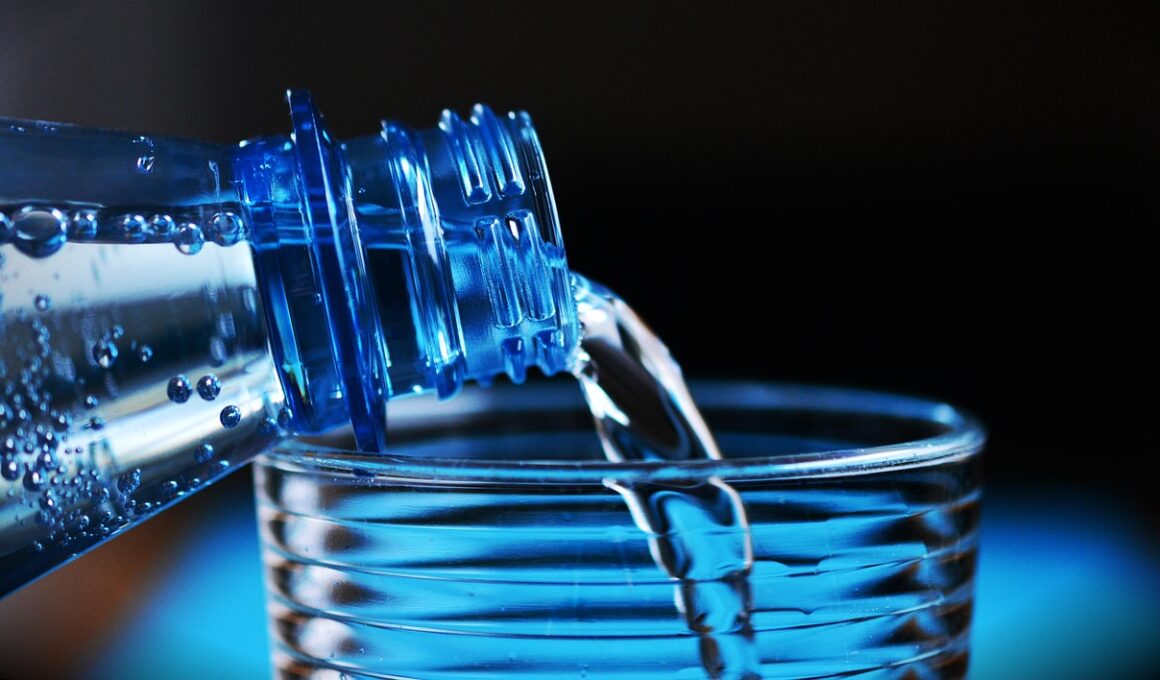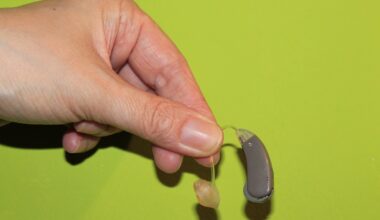The Impact of Dehydration on Your Body’s Detox Pathways
Dehydration profoundly impacts your body’s ability to detoxify effectively. Water plays a crucial role in supporting essential bodily functions, including the elimination of toxins. When dehydrated, your kidneys, responsible for filtering waste from the blood, struggle to perform efficiently. Reduced kidney function can lead to toxin buildup, adversely affecting your health. Often, dehydration triggers fatigue and muddled thinking, as the brain requires substantial water for optimal performance. A mere 2% drop in hydration levels can lead to significant cognitive declines. Moreover, lack of hydration affects the liver, which is vital for processing and detoxifying various substances. When you do not consume enough water, the liver might redirect its resources away from detoxification to maintain hydration levels. This scenario can compromise metabolic functions and overall health. Furthermore, the skin also suffers when dehydrated. It becomes less effective at eliminating waste, leading to breakouts and other skin issues. Therefore, maintaining adequate hydration is essential for ensuring your detox pathways remain unblocked and efficient. To stay hydrated, aim for regular water intake throughout the day and consume hydrating foods that assist in overall detoxification.
In order to grasp the critical nature of hydration, we must examine how water contributes to enzymatic reactions within our bodies. Enzymes, which facilitate biochemical processes, are fundamentally dependent on water for their function. When dehydration occurs, these enzymatic processes can slow down significantly. For instance, the digestion of food relies heavily on enzymes and adequate fluid levels to break down nutrients effectively. Dehydration can compromise this process and hinder nutrient absorption, resulting in a lack of energy and vitality. Additionally, water helps transport these nutrients throughout the body, ensuring that every cell receives the necessary fuel for optimal functioning. Improved hydration promotes better circulation, allowing oxygen and essential nutrients to reach vital organs. Furthermore, the digestive system itself depends on a well-hydrated state to maintain its functions. Without sufficient water, constipation can become a common issue, further complicating detoxification efforts. Fibrous foods and fluids work together synergistically to cleanse the colon, and without hydration, this process can be severely impaired. Implementing proper hydration practices into your daily routine ensures smoother digestion, better nutrient absorption, and enhanced detoxification outcomes that promote overall health.
One significant aspect of hydration relates to the body’s lymphatic system, which is critical for detoxification and immune function. The lymphatic system relies on a continuous flow of lymph fluid to transport white blood cells and eliminate toxins from the body. Adequate hydration fosters a healthy lymphatic system and ensures optimal functioning, which helps prevent diseases and infections. Dehydration can lead to stagnant lymph fluid, increasing the risk of infections and inflammation within the body. It’s essential to support lymphatic drainage through both hydration and physical exercise; movement aids the lymph fluid’s flow, working synergistically with proper water intake. Individuals who are adequately hydrated find it easier to maintain a robust immune system, as lymphatic health is closely tied to overall immunity. It’s vital to drink enough water daily to facilitate lymphatic circulation, especially during rigorous physical activity or in hot weather conditions. Herbal teas and water-rich fruits and vegetables also contribute toward fluid intake, making this more enjoyable. By prioritizing hydration, you bolster the lymphatic system’s detox capabilities while enhancing your overall health, wellness, and energy levels. Consider integrating more fluids into your daily routine to optimize lymphatic function.
Hydration and Organ Function
Proper hydration is essential for maintaining optimal organ function, particularly the kidneys and liver, which are vital in detoxification. When you’re dehydrated, your kidneys retain more water, reducing urine production and leading to the concentration of waste products in the bloodstream. As a result, the kidneys must work harder, potentially leading to long-term damage if hydration levels do not improve. The liver also encounters difficulties in detoxifying substances effectively if hydration is compromised. When water intake is inadequate, the liver’s metabolic processes may slow down, impacting its ability to convert toxins into less harmful substances. Moreover, dehydration can lead to acidic blood, prompting the liver to compensate by utilizing minerals from bones, which can lead to health issues over time. Therefore, to prevent these harmful consequences, consistent hydration is paramount. Aim for at least eight 8-ounce glasses of water daily, adjusting intake based on climate and activity level. Additionally, incorporating hydrating foods can significantly contribute to your total daily fluid intake, assisting organ function and overall efficiency in detoxifying your body. Remember, adequate hydration is essential for keeping your organs functioning healthily.
Another important aspect of hydration is its relationship with sweat and thermoregulation during detoxification. Sweating is a natural process through which the body releases toxins, and this process heavily depends on adequate hydration levels. When dehydrated, the body struggles to produce sweat, making it difficult to cool down during exercise or hot weather. Consequently, this can lead to overheating and increased risk of heat-related illnesses. Additionally, insufficient sweating may hinder the body’s ability to eliminate waste products like heavy metals and other toxins. Proper hydration allows for constant sweat production, which facilitates toxin release, thereby promoting detoxification. To support this function, it’s important to replenish fluids lost through sweat, especially after understanding how much your body loses during physical activity. During intense workouts or strenuous conditions, electrolytes also play a crucial role. Therefore, drinking sports drinks that contain electrolytes can help replace lost minerals and drive hydration. In contrast, water-rich foods can also augment fluid intake. Overall, a committed approach to hydration supports sweating efficiency and better detoxification outcomes for improved physical performance and health.
Moreover, hydration contributes to maintaining optimal blood pressure and circulation, both of which are crucial for detoxification. When the body is dehydrated, blood volume decreases, causing the heart to work harder to maintain adequate circulation. This can lead to elevated blood pressure levels, creating additional stress on the heart and cardiovascular system. Proper hydration prevents these issues by ensuring that the blood remains at an appropriate viscosity, allowing for easier flow through blood vessels. When blood circulates efficiently, the kidneys and other organs can work effectively in filtering toxins and waste products from the bloodstream. Furthermore, hydration helps maintain electrolytic balance, which is essential for preventing muscle cramps and promoting overall health. Adequate hydration also enhances nutrient transport, ensuring that essential vitamins and minerals reach their target organs efficiently. To achieve optimal levels of hydration, consider utilizing methods such as carrying a water bottle throughout the day or setting reminders to drink water regularly. Ultimately, staying well-hydrated enhances circulation and blood pressure control, ensuring detox pathways remain clear for improved health and detoxification outcomes overall.
In summary, dehydration can significantly impair your body’s detox pathways, affecting organs like the kidneys and liver, and hindering overall detoxification. The importance of hydration cannot be overstated, as it supports enzymatic functions, lymphatic circulation, and cardiovascular health. Consequently, to promote detoxification, it is vital to prioritize adequate water intake throughout your day. Consuming water-rich fruits, such as watermelon and cucumbers, making smoothies, and drinking herbal teas all contribute positively to fluid intake. Moreover, paying attention to physical activity levels and environmental factors, like temperature, is crucial in determining daily hydration needs. Hydration not only enhances detox pathways, but it enhances energy levels and cognitive function, ultimately improving overall quality of life. Staying conscious of how hydration impacts your health can empower you to make better choices that lead to lasting wellness. By adopting proactive hydration habits, you equip your body with the tools necessary to maintain optimal detoxification and support overall health. Remember, investing time in hydration is investing in your health; every sip you take fosters a cleaner, more efficient, and healthier body.


